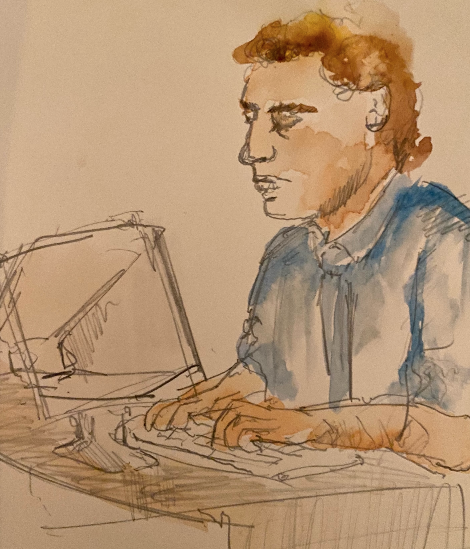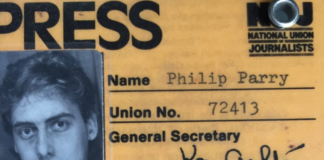- Wordy again part three - 16th February 2026
- ‘Lies, damned lies etc…’ - 13th February 2026
- Missing in action - 12th February 2026

Disturbing news that human rights and freedom of expression organisations have demanded the UK Government halt the proposed multi-million pound takeover of a media group and investigate links with China, highlight concerns our Editor, Welshman Phil Parry, has about the erosion of free journalistic inquiry everywhere.
Along with a lot of people, I am worried.
I have always been lucky enough to work as a journalist since 1983 in a free environment (starting on the South Wales Echo [SWE]), but now it is under threat all over the globe.
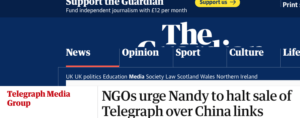 While there is no suggestion that the likely owner of the Telegraph, RedBird Capital will attack journalistic freedom, this latest example of a media takeover is definitely a source of concern.
While there is no suggestion that the likely owner of the Telegraph, RedBird Capital will attack journalistic freedom, this latest example of a media takeover is definitely a source of concern.

A group of nine international non-governmental organisations, which include Index on Censorship (IoC), Reporters Without Borders (RWB) and Article 19 (which declares that it “works for a world where all people everywhere can freely express themselves”), have written to the UK Secretary of State for Culture, Media and Sport (CMS) Lisa Nandy, arguing that RedBird Capital’s links with China “threaten media pluralism, transparency and information integrity in the UK”.
RedBird Capital announced earlier this year it had agreed a deal to buy the Daily and Sunday Telegraph, ending two years of uncertainty over the future of the titles.
I must admit I didn’t even know these links even existed, but if they do it is alarming.
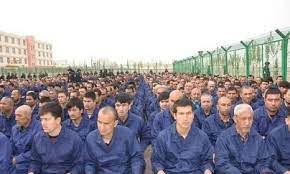
Regrettably China (like many others) is not a signatory of the International Criminal Court (ICC) so it can do nothing about the country’s persecution of the Uyghurs in Xinjiang, and the details of rape, torture as well as mass imprisonment had to be revealed by brave underground journalists.
China has tried to cover up all these abuses, and, for example, blanked out the prison camps on online maps only for diligent researchers to find them again by looking at the empty spaces.

According to Kenneth Roth, a former head of Human Rights Watch (HRW), China has become the greatest “threat to the global human-rights system”.
This comment, and human rights violations, show, too, the importance of politics (Chinese authorities claim they have dealt with transgressions firmly and have responded to pressure from ordinary people), as well as the role of independent journalism.

A free and independent media does not exist in China and it is emphasised by what has happened in Hong Kong (HK) where stiff jail sentences have been handed down.
Among those who received lengthy prison sentences was Gwyneth Ho.
She is a journalist-turned-politician who rose to fame when she live-streamed gangs attacking protesters in 2019 while the police looked on.
Ms Ho was sentenced to seven years in jail (like her, most of the activists had already spent four years behind bars while awaiting trial).

The punishments, though, drew swift criticism from abroad.
America said the activists were “jailed for peacefully participating in normal political activity”, while the EU called the sentencing “another unprecedented blow against fundamental freedoms, democratic participation and pluralism” in HK.

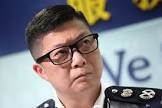
Still, there are those who think the activists got off lightly. Chris Tang, HK’s security chief, suggested the Chinese Government was considering whether to appeal against some of the punishments in the hope of making them stiffer still, because the ‘principal offenders’ in a national-security trial could have been given a life term.
Related to this outrageous event is what has happened to the media publisher and pro-democracy campaigner 77 year old Jimmy Lai (see story soon).

Mr LaI (a UK citizen) was arrested four years ago, and held in solitary confinement for more than two of them. He was charged with one count of conspiracy to publish seditious publications and two counts of conspiracy to foreign collusion, and pleaded not guilty to all charges.
But this is only the latest action taken by China in attacking media freedoms, as well as minorities.
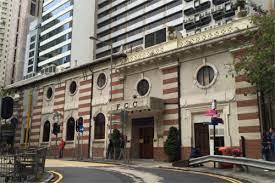
The huge country has NO democracy or an independent judiciary, the media outside state control is EXTREMELY limited, and it does NOT respect human rights.
The Foreign Correspondents Club (FCC) of China (which was deemed an “illegal organisation”) has highlighted the reality of what is happening inside it.
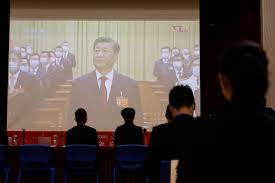
Their report, said that journalists faced physical assault, hacking, online trolling and visa denials, as media freedom in China declined at a “breakneck speed”.
Censorship has been implemented and mandated by the Chinese Communist Party (CCP). Government officials censor content for largely political reasons, such as in order to curtail opposition (as has happened in HK), as well as to block information about events which are unfavourable to the CCP, like, for instance, the 1989 Tiananmen Square protests and massacre, but also so that officials can maintain control over the populace.

Journalists like me must fall into line, and not question official policy.
Otherwise, the authorities fear, they might discover uncomfortable facts, perhaps about RedBird Capital…
The memories of Phil’s decades long award-winning career in journalism (when media freedoms were all-important) as he was gripped by the rare neurological condition, Hereditary Spastic Paraplegia (HSP), have been released in a major book ‘A GOOD STORY’. Order it now!

‘Free as a bird part two’ comes on Monday where Phil explores how there is today more evidence of threats to media freedom, despite the Welsh Government (WG) say it is “vital”, with journalists being killed by the Israeli Defence Force, and a guilty verdict expected after a flawed ‘trial’ of Mr Lai.
Next week – how disturbing news that the BBC have been hit by yet another scandal over ‘Strictly Come Dancing’, once again shines the spotlight on their REFUSAL to answer The Eye’s questions about others








